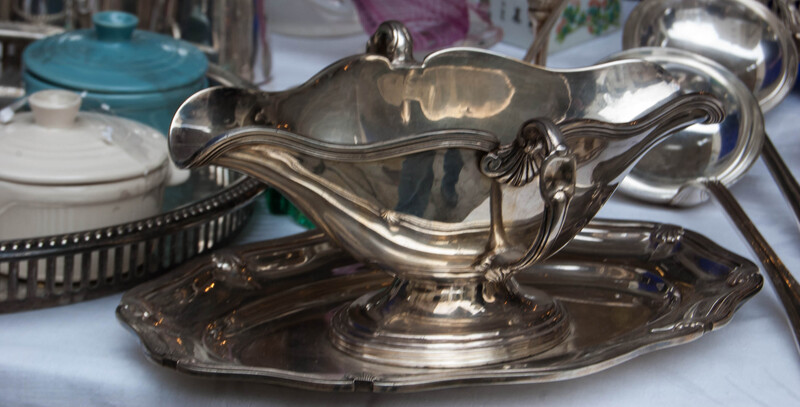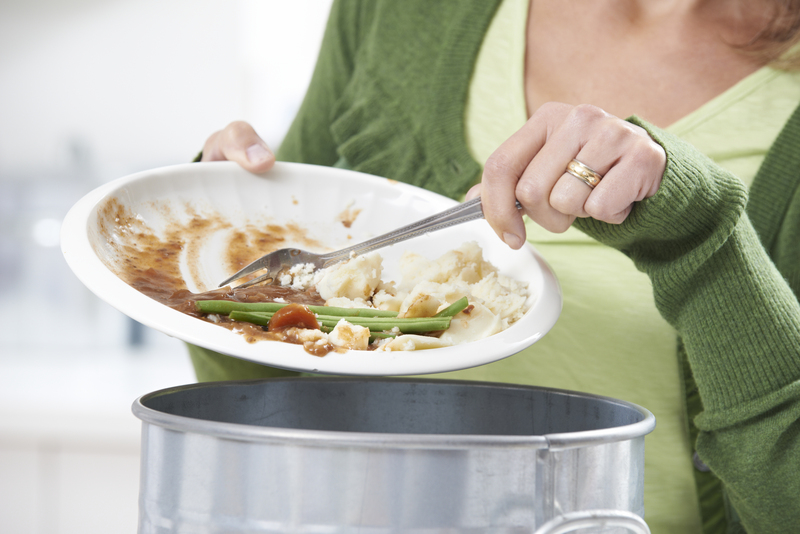Donating, Recycling, or Upcycling: Pots and Pans Disposal Explained
Are you decluttering your kitchen and wondering what to do with those old pots and pans taking up cupboard space? Every year, millions of households upgrade their cookware, leaving behind a pile of added clutter. Unfortunately, improper disposal leads to landfill waste, and not everyone knows how to dispose of kitchenware responsibly.
In this comprehensive guide, we'll explore donating, recycling, and upcycling old pots and pans, detailing eco-friendly and creative solutions. Whether your cookware is made of stainless steel, aluminum, non-stick materials, or cast iron, here's exactly how to give them a responsible second life.
Why Responsible Pots and Pans Disposal Matters
Tossing old pots and pans in the trash not only fills up landfills but also squanders resources. Many cookware items contain metals or coatings that take decades to decompose, potentially leaching chemicals into the soil. Moreover, with increasing global efforts toward sustainability, disposing of household goods, including used cookware, in an eco-conscious way is more important than ever.
- Reduces Landfill Waste: Proper cookware disposal reduces landfill overflow.
- Conserves Resources: Recycling metal saves the energy otherwise required for mining.
- Supports Communities: Donating usable items helps families and local organizations.
- Promotes Creativity: Upcycling transforms waste into useful, artistic new items.

Assessing Your Cookware: Can It Be Reused?
Not every pot or pan needs to be thrown out. Before disposing of cookware, inspect them for usability:
- Lightly Used: No major dents, cracks, or missing handles? Consider donating.
- Damaged or Heavily Worn: Chipped, non-stick surfaces or warped bases are better off recycled or upcycled.
- Cast Iron Skillets: Even rusty cast iron can often be restored, making them prime candidates for donation or upcycling.
Donating Old Pots and Pans: A Second Serving
If your old cookware still works well, donation is a win-win--helping others while reducing waste. Here's how you can donate pots and pans thoughtfully:
Where to Donate Kitchenware
- Local Charities and Thrift Stores: Organizations like Goodwill, Salvation Army, or local shelters often accept kitchen essentials.
- Homeless Shelters and Community Centers: Many provide daily meals and need functional cookware.
- Refugee Support Groups: Help new arrivals settle in with essential kitchen tools.
- Churches or Food Banks: Contact them to see if they accept kitchenware donations.
- Online Community Groups: Try posting on Facebook Marketplace, Freecycle, or neighborhood apps.
Donation Tips for Used Cookware
- Clean Thoroughly: Scrub, degrease, and fully dry all items before donating.
- Check Acceptance Policies: Some organizations don't accept certain types, e.g., non-stick pans due to safety concerns.
- Package Safely: Tie handles or lids together so pieces stay intact during transport.
Benefits of Donating Old Pots and Pans
- Reduces household waste while aiding those in need.
- Brings essential tools to families and organizations at minimal cost.
- Helps local economies: Thrift stores often use proceeds for community programs.
Recycling Pots and Pans: Turning Old Metal Into New
If your cookware isn't safe for further kitchen use, recycling is a smart, eco-friendly choice. Most pots and pans are made of metal--stainless steel, aluminum, or copper--which are highly recyclable.
Understanding Cookware Recycling Rules
Not all recycling programs accept pots and pans curbside. Here's how to recycle them responsibly:
- Check With Local Scrap Yards: Many accept cookware, especially if it's pure metal.
- Municipal Recycling Centers: Some city programs accept large metal items -- call ahead.
- Special Collection Events: Watch for metal recycling or household hazardous waste drop-off days.
- Retailer Recycling Programs: Some stores provide take-back options for old cookware during store events or upgrades.
Preparing Pots and Pans for Recycling
- Remove Plastic & Non-Metal Parts: Separate handles, lids, or non-metal inserts if possible.
- Clean Off Food Residue: Wash the pans to avoid contaminating the recycling stream.
- Identify Metal Type: Sorting by metal type can make recycling more efficient. Use a magnet--if it sticks, it's likely steel or iron; if not, likely aluminum.
Pots and Pans Not Fit for Regular Recycling?
Got a non-stick pan with a damaged coating? Many curbside programs don't accept non-stick cookware, but metal recycling yards and certain specialized centers do. When in doubt, call ahead or check your local city's recycling guidelines.
Environmental Benefits of Recycling Old Cookware
- Conserves natural resources by reducing the demand for new materials.
- Saves energy, as recycling aluminum and steel requires far less than mining and smelting new metal.
- Reduces greenhouse gas emissions associated with landfill disposal and resource extraction.
Upcycling: Turning Old Pots and Pans Into Art, Storage, and More
If you love being creative, upcycling old kitchenware is the trendiest way to keep it out of the landfill. Turn old pans into statement decor, garden planters, or practical home organizers. Here's how to get started:
Easy & Creative Upcycling Ideas
- Planters: Drill drainage holes and use your old pot as a quirky plant home.
- Wall Art: Paint frying pans with chalk paint or metallic spray for kitchen decor.
- Hanging Storage: Attach hooks to skillet handles to organize tools in the garage or shed.
- Clocks: Glue clock mechanisms to the bottom of a pan for a rustic wall clock.
- Candle Holders: Fill used baking molds (like muffin tins) with wax for DIY candles.
- Bird Feeders: Hang a bowl or pan from a tree as a feeder.
- Jewelry Trays: Small baking trays can be repurposed as decorative organizers for jewelry or coins.
Tips for Safe & Stylish Upcycling
- Clean and Sand: Scrub thoroughly and sand any rust spots.
- Use Non-Toxic Paint: If the upcycled item is for indoor or food use, select non-toxic coatings.
- Get Creative with Accessories: Add knobs, hooks, or rope to personalize your project.
Pro Tip: Upcycling can be a fun family activity or a thoughtful way to make handmade gifts--all while reducing your environmental footprint!
Frequently Asked Questions About Disposing of Pots and Pans
Can Non-Stick Pans Be Recycled?
Most non-stick pans are made of aluminum or steel with a Teflon or ceramic coating. The metal is recyclable, but the coating often isn't. Specialized metal recycling centers may accept these, but always check first. Never burn off the coating yourself, as it releases toxic fumes.
What About Cast Iron Skillets or Woks?
Cast iron cookware is incredibly durable and can often be restored even if rusty. If recycling, remove wooden handles. Many scrap yards accept cast iron, or consider upcycling it into outdoor planters or decor.
Does Curbside Recycling Accept Cookware?
Most municipal curbside programs don't take pots and pans due to their size and mixed materials. Call your local waste authority or take them to a scrap metal yard for proper cookware disposal.
Can Cookware Go in the Garbage?
As a last resort, you can place unusable cookware in the trash, but this should be avoided if possible due to its environmental impact. Always consider donation, recycling, or upcycling first!

Tips for Buying Environmentally-Friendly Cookware
To avoid future pots and pans disposal dilemmas, invest in long-lasting, eco-conscious products from the start. Here are some buying tips:
- Choose Durable Materials: Stainless steel, cast iron, and quality aluminum pans last decades.
- Look for Recyclable Components: Seek cookware with removable handles/lids for easier recycling.
- Avoid Cheap Non-Stick: Lower quality items wear out quickly and are harder to dispose of responsibly.
- Research Brand Take-Back Programs: Some brands recycle their own products.
Summary: Choosing the Right Pots and Pans Disposal Method
When your kitchen cookware has outlived its usefulness, choose a disposal method that makes a difference:
- Donate: If usable, give a household in need a helping hand.
- Recycle: Turn old metal into valuable raw materials.
- Upcycle: Get creative and give your kitchenware a new purpose.
By properly disposing of your old pots and pans, you're not only clearing clutter from your kitchen--you're playing a vital role in environmental stewardship and community support.
Looking for more green living tips? Bookmark this guide to donating, recycling, or upcycling cookware--and inspire others to make eco-friendly choices in their homes!
